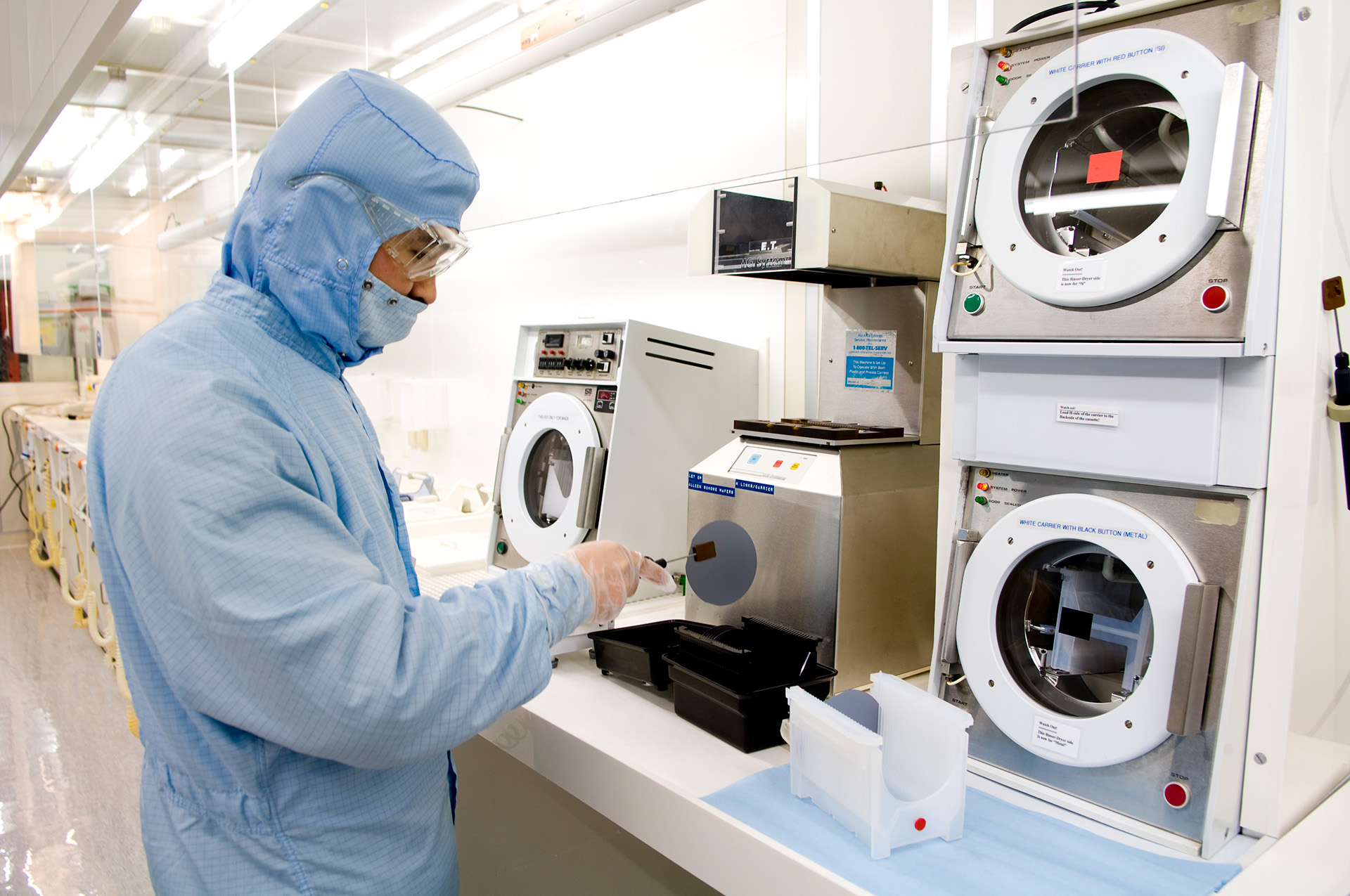Track: Microelectronics

Degree: Master of Science Electrical Engineering, Track: Microelectronics
Credits: 120 ECTS, 24 months
Type: Regular study programme
Mode: Full-time
Language of instruction: English
Start: September
Microelectronics play a crucial role in all fields of innovation. The ever-increasing demand for processing power, sensing capabilities, communication, and miniaturisation makes microelectronics the most innovative field of all.
For example:
- Chipmakers are pushed to develop new and reliable processes that allow the integration of hundreds of millions (or even billons) of transistors onto a single microchip.
- Analogue designers are challenged to build accurate circuits from clearly non-ideal transistors.
- Digital designers face problems with regard to the design, layout and testing of highly complex circuits.
- System designers must meet the requirements of application environments that are often multidisciplinary.
Graduating in Microelectronics constitutes an excellent basis for a successful international career in this field. The department is internationally renowned for its research on smart sensors, microsystems, semiconductor fabrication, solar cells, signal processing, RF transceivers and RF components. This is reflected by the high number of publications in top-level journals, invitations for key-note speeches, and international awards received. Students have the opportunity to transform their own ideas from theory to application in the department’s own clean room and, quite often, present their work at international conferences. The range of facilities also encourages fruitful discussions between design oriented and technology-oriented students.
What you will learn
Within the 2-year programme students receive highly specialised knowledge and experience that they need in order to design, fabricate and test electronic devices, circuits and systems. You will take part in one of the internationally renowned research projects among others smart sensors, microsystems, semiconductor fabrication, solar cells, signal processing, RF transceivers and RF components. At TU Delft you will get the opportunity to transform your own ideas from theory to application in the clean room of Else Kooi Laboratory (EKL).
Scholarships Microelectronics
The Department of Microelectronics offers a number of scholarships which are available for students of proven excellence. These scholarships include:
- Full tuition fees for the TU Delft MSc programme and contribution to living expenses for 2 years. To be considered for these scholarships, your complete application for the MSc programme needs to be uploaded before December 1st. More information
- Industrial sponsored scholarships comprising tuition fee waivers for the 2nd year. To be considered for these scholarships students should show excellent performance during the first year and choose a thesis topic in line with the sponsor’s interest, usually a chip design.
Apart from scholarships other forms of financial support exist. During their thesis project many students receive a stipend that usually covers part of the living expenses. Also students can earn some money as part-time Teaching Assistants.
Biomedical Devices specialisation
For information regarding the Biomedical Deviced specialisation, check this page.
Other students also viewed:
• MSc. Computerl Engineering
• MSc. Embedded Systems



